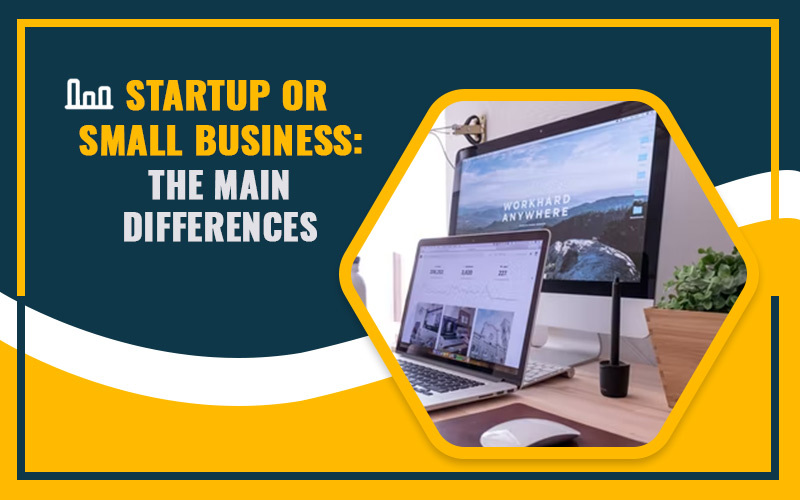“Startup” is a popular buzzword on many social media platforms. This is because technology has grown to the point where everyone now wants to tap into the possibilities that the industry has to offer. When you hear the word “startup,” what first comes to mind? A new business looking to grow eventually?
Or a small-scale business struggling to thrive in the industry? If the latter is your answer, you’re wrong. A startup is a newly established business still in its initial stage but looking to grow to a point where it can compete with industry giants. A startup is not a small-scale business venture or a baby company. This article aims to change the narrative of how people view startup businesses by differentiating between startups and small businesses.
1. Growth Intent: The vision of every startup business is to grow and dominate the market where they find themselves. Although this does not happen overnight, sometimes it takes years for a startup to attain profitability. Still, the main idea behind a startup is growth, stability, and eventually competing with existing giants in the industry. The same cannot be said for small businesses because the structure of a small business venture tells you already that the business owner is not heading towards expansion. All they want is a business that has the potential of making them money at that particular time. A small business does not need a large market. It needs the correct positioning to reach its target audience and make money.
2. Funding: Funding is another significant distinction between startups and small businesses. While a small business can be funded through the owner’s private savings, loans from Microfinance banks, or investments, startups have a unique way of generating their initial capital. Many startups are funded through investments from investors who trust the business model to yield in the long run. Crowdfunding is another way startups generate their profit. Partners who come together to develop the startup idea could also put capital together to find the business project. Startups do not opt for loans from banks because they understand that, unlike small businesses, their model might not yield a profit at the initial stage.
3. Vision: The end vision of a small business is to remain in business; although they do not intend to dominate the industry, they still wish to remain in business and continue making profit till eternity. However, the end vision of many startup businesses is temporary. Although, if everything goes as planned, the startup would turn out massive and compete with industry giants, the reality is most startups begin to face major challenges along the line and are bought by more prominent companies in the industry.
4. Profit: There is a higher chance that a small business will start making a profit as soon as it is launched. A small business owner could make a thousand sales on the launch of his new business, but a startup would take months or years to get its first client even after so much money has been spent on PR and publicity for the company. This is why it is easier for small businesses to pay up loans from banks. However, a startup has the possibility of making the money a small business would make in five years in just one day.
5. Level of risk: Startups are riskier business ventures because they are often established based on a new model or concept. A startup comes into the market proposing a new product or idea that it is uncertain that the market will understand or buy into. The business will then begin to have issues when users start struggling to navigate their way through the new product. However, small businesses are established based on an existing product or idea. They do not try to bring a new product into the market. They focus on already known products and try to rebrand to reach a target group.
6. Industry: While small-scale businesses do not need a particular industry to thrive, many startups depend on the tech industry to gain their ground. Most startups are in the tech industry because they know that technology has a broad reach and can grow fast. Small-scale businesses, on the other hand, can choose to stick to whichever industry they like as long as there is a possibility of making a profit.
Now that you know the differences between a small business and a startup, you must decide what kind of business you want to venture into. It would interest you to know that the country where you decide to start your business would determine how far your business will grow. Here are some of the best countries to start your business: the United Kingdom, Singapore, Hong Kong, Canada, America, Mexico, and New Zealand. However, it would help if you considered opening a company in Singapore because it is one of the fastest growing nations in the world in terms of business. If you are more concerned about making a profit as soon as you launch, you already know the venture you should choose.
Final Words
The truth is, “startup” is just another word for a new business. The difference between a startup and an established company can be difficult to define, but one thing’s for sure: startups are always looking at how they might grow into larger firms that compete with industry giants- while older businesses may settle down or become more comfortable in their position.
Also Read: What are the common Pros and Cons of RO Water Filters?




